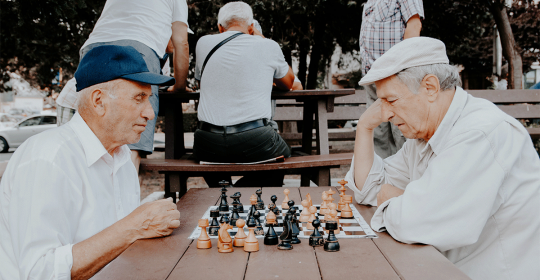
World Alzheimer’s Day 2020
On World Alzheimer’s Day we asked Kim Henderson, a clinical psychologist at the German Neuroscience Center in Dubai to write about the psychological impact of a diagnosis and the years that follow.
Alzheimer’s disease is one of more than 400 types of dementia and the most common. It is a physical disease that affects the brain. The brain has billions of nerve cells that connect and communicate with each other, but with Alzheimer’s, these connections are lost when proteins build up and form abnormal structures called plaques and tangles. Alzheimer’s is progressive, so over time more parts of the brain are damaged, and more symptoms develop. Early symptoms usually present as memory problems, in particular difficulties in short-term memory, such as recalling recent events and learning new information.
An Alzheimer’s diagnosis
An Alzheimer’s diagnosis can have a huge impact on a person’s life. They’re likely to experience a range of emotions, including grief, loss, anger, shock, fear, disbelief and sometimes relief. Some people may struggle to deal with these emotions and move between them as they adjust. Pre and post-diagnostic counselling can be very useful and the approach to therapy will be adapted to the individual’s needs. Interventions such as cognitive stimulation therapy (CST) or reminiscence therapy can also help to delay the worsening of symptoms.
Changing personality and mood
As well as problems with memory, personality changes are frequent and can be difficult for loved ones to accept. Sufferers are prone to apathy, depression and anxiety. Although people without dementia can experience these too, they are much more common with dementia and can be more challenging to treat. These changes occur for many reasons, for example, physical changes to the brain, confusion, sensitivity to noise or activity and sleep disturbances. Dementia can also cause people to feel insecure and lose confidence in their memory and abilities. They can feel out-of-control, have additional health problems, experience financial difficulties, employment issues, and/or relationship problems, which all indirectly affect their self-esteem.
Strain on family members and carers
In my experience, all families have different stories about their loved one’s diagnosis and their reactions are equally varied. I’ve heard people describe relief, uncontrollable tears, a matter-of-fact approach, anger, and complete denial. These emotions are all valid and very much depend on the carer’s style of coping with everyday life.
Unfortunately, research shows that 40 to 70 percent of those caring for people with chronic or neuro-degenerative diseases have clinically significant symptoms of depression. Studies also suggest that women fare worse than men, reporting higher levels of depressive or anxiety symptoms. Getting the right support at the right time is crucial for both carers and their loved ones.
Dealing with difficult behavior if you’re a carer
- Remind yourself that personality changes are caused by the disease and they’re not malicious or intended to cause hurt.
- Arguing with someone in different stages of dementia doesn’t help, so try to use redirection and distraction instead of attempting to reason with your loved one.
- Focus on the patient’s feelings, not their words or their actions. All expression is a way of communicating a need.
- Be aware of and address any physical, environmental or psychological causes of challenging behavior.
The carer’s own mental health
My advice would always be to seek support from a psychologist or mental health professional to help deal with the emotional toll. Psychoeducation can be incredibly powerful, helping carers to understand more about the illness and its impact. Also, family counselling by someone experienced in dementia can help members work through the challenges they face as part of their new care role.
Getting emotional support doesn’t always mean formal counselling. There are ways to get support by interacting with others in the same situation, getting involved in a support group, spending time with family and friends, taking time out and engaging in activities that bring joy by organising respite services for the person they care for.
According to the Alzheimer’s Research UK 63.5 percent of carers say they have no or not enough support when looking after their relative or loved one. For anyone going through it, please reach out. You are never alone.
The original article was published in LiveHealthy magazine.

